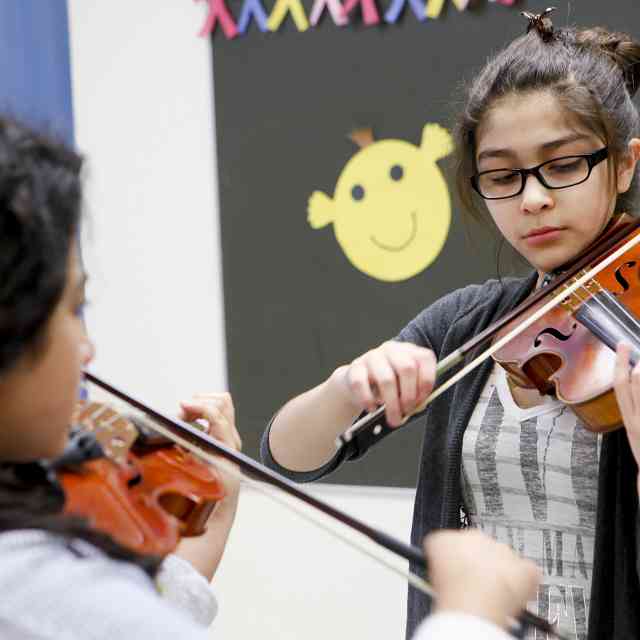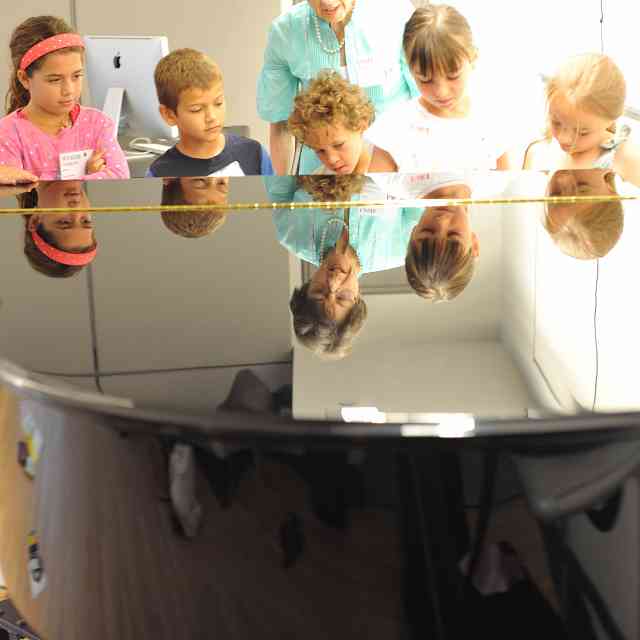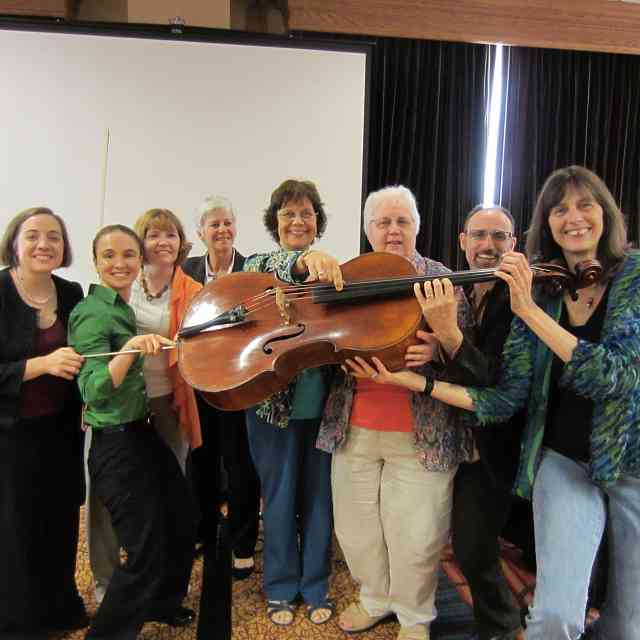Join us on the blog this week as we recap some sessions from the 2013 SAA Leadership Retreat—and save the date for even more ideas and inspiration at the 2014 SAA Conference!

Allen Lieb gives a violin lesson at Montana Suzuki String Institute.
Build a Strong Community within your Parent Group
- Have “group” parties once a month. Kids play in group and play solos. Parents have the opportunity to chat. Everyone takes a turn bringing snacks.
- Stress the importance of regular attendance at group class for making new friends.
- Encourage parents to make play dates for kids to practice together.
- Use high school students as practice “buddies.”
- Host chamber music parties.
- Organize informal parent chats where experienced parents “mentor” the newer parents.
Recruiting Ideas
- Word of mouth is often the best way.
- To get them in the door, offer a free first lesson.
- Arrange small group performances in the community.
- Approach local schools about doing assembles.
- Play in pre-schools.
- Set up Google Ads, using key words to take them to your website.
- Offer Living Social and Groupon deals.
- Play in local churches, synagogues and libraries.
- Pre-Twinkle camps: Two hours on a weekend where the kids have an opportunity to try out an instrument and do an Orff-like class, and parents can obtain information on the program.
- Play at community fairs where young families will be present. Have a booth where young children are playing. Have a “petting zoo” with instruments to try out.
- Open houses incorporating videos, live performances and an informational meeting.
- Offer or require parent education classes before signing up and while that is happening require observations and group Pre-Twinkle classes.
Other Management Tips
- Tuition should be paid in larger clumps so that the parents make a long term commitment.
- Be professional in all aspects.
- In scheduling lessons, remember to be flexible for the parents but sensitive to your own needs.
- Websites are available to help organize your studio: Music Teachers’ Helper, Doodle, Google Docs, and Sign Up Genius are examples.
- Network with other musicians.
- Ongoing teacher development is essential to the growth of the individual teacher and the studio.
- Observe other teachers in the area.
- Develop good communication with parents, fostering the atmosphere of honesty, trust and respect.
- Remember Every Child Can and Every Parent Can.
- Make sure that the parent knows what is expected of them.
- Lay out expectations with new students/parents from the beginning.
What are your best studio management tips?









Comments